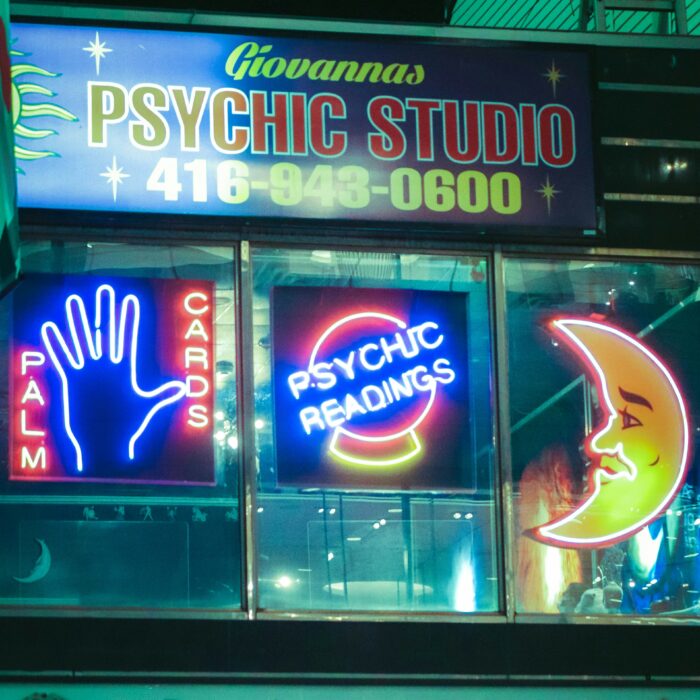You have no items in your cart. Want to get some nice things?
Go shopping

“You’re. A. C**t.”
I just laughed.
This was 1994, at The Venue in New Cross.
Ed Borrie, the lead singer of S*M*A*S*H, leaned forward during some… song, can’t remember which but it was very noisy, and snarled over the pogoers heads and right into my face. I laughed, gave him the V and kept pogoing. Later, Tara, from support band The Nubiles, would approach me and my mates and tell us he thought we were going to pick a fight with them (we were the only three people watching and pogoing at their set). Hilarious. We were cowards. It was all pose and pout, a provocative glare and stare – and we’d have run for it if the threat of violence had actually escalated.
And so this was New Wave of New Wave. You remember it? Yeah, you do. From the 90s? No? That’s right. Because the swollen, bloated behemoth that was Britpop devoured everything in its path, eventually bleaching everything and anything with its made-to-measure BLAH BLAH BLAH.
Do you know who you have to thank? The music press. So desperate for their very own swinging 60s scene, they adopted bands like Suede and Blur and Oasis, shoe-horned in the art school treasure, Pulp, and then like deranged, mutually congratulating inbred scientists, created Britpop.
Welcome to the 90s.
It’s difficult to express just how barbaric the world was at the beginning of that decade. No Facebook, no Snapchat, no Tinder, only four UK television channels… Dear God, how did we cope? It’s obvious, isn’t it – we didn’t. What saved us then? How did we survive the banality of an internet and streaming TV-shaped hole where our hearts should have been?
This is where I make the argument for the idea of relevance. Music was relevant. The 60s had the quaint subversion of pop rock, beat, and folk; the 70s gave us prog, glam, disco and punk; the 80s… Stock Aitken Waterman… All these sub-cultures gave us something to belong to, an idea – peace, anger, apathy – to align ourselves with; the tribe as extension of our identity; the vehicle to express our disconnection.
How old you are will probably inform how much you look back at the 90s with love, or barely repressed dislike. Sleeper’s Louise Wener recently said (on Twitter) that she looked back at that time with joy, but I saw her on the tube once, around 1996, radiating attitude, too cool for school – pretty arsey-looking.
It was the currency.
The problem with Britpop was that for one generation (who didn’t know any better) it was fresh and exciting, for another it was regurgitation and pale imitation. Yes it was. The hills were alive with the echoed twangs of Wire or Pavement, or The Beatles or The Kinks or…
I was in my early 20s at Britpop’s peak of 1994/95. I preferred punk, post-punk, Iggy and Bowie, Cabaret Voltaire, Gang of Four and and and . . . Why listen to Elastica when I could listen to Pavement or Wire? No need whatsoever to bother getting involved in the contrived North and South Oasis-versus-Blur pantomime (a laughable attempt to repeat the Beatles/Rolling Stones rivalry), never so wretchedly exposed as with the insipid, half-hearted nursery rhyme ‘Country House’, barely outselling the limp paint-by-numbers ‘Roll With It’ in the Battle of Britpop… See, funny now isn’t it, like ha ha, yeah, that’s ridiculous funny…
Damian Hirst directed the video for ‘Country House’. In On the Way to Work by Gordon Burn, Hirst says he pretty much did his best ever piece first, A Thousand Years, 1990. He was right. Anyway, at least it was all British! Finally, after years of formulaic Australian TV soap star pop, dance music, rap, shitty Euro-pop, and the LA and Seattle sleaze, metal, and grunge invasion, we had something to call our own! Brilliaaaaaaaant! Well done music press! You wanted it, now you’ve got it – what are you going to do with it?
What did they do with it?
Well, apart from inspiring or annexing bands like Echobelly, Northern Uproar, Menswe@r, Kula Shaker, Cornershop and Republica, nothing much, other than go mainstream, recruiting Oasis and Blur t-shirt-wearing townies on the yellow brick road to Laddism . . .Yep, what began as a reclaiming of the British music scene eventually sank to the sorry depths of WHSmith-validated wank mags for the boys.
And then appetites changed. Began to change. The Prodigy smacked their bitch up, Radiohead creeped, The Verve neatly bumped and swerved, PJ Harvey smashed the cover of ID magazine, singing to us about naked cousins, and Ocean Colour Scene… sang-a-lot-of-words-very-quickly-in-a-short-amount-of-music, their mediocrity endorsed by the increasingly vile bully-boy Chris Evans. The Manic Street Preachers recovered from the sad loss of Richey, and lost their outsider label with him.
Then there was the Spice Girls. At my art college, Malcolm McLaren did a lecture for the fashion kids. At the Q&A afterwards he was asked what he thought of the Spice Girls, and in that dry, languidly-piercing voice, told the enraptured audience that he was “starting a band called the Rice Girls…”
That was. His answer. Next question?
Perhaps you had to be there…
Britpop was the movement no one had asked for. Imagine if the term had never been coined. Imagine a world where those British bands had just gone about their business, unencumbered by the Britpop label, that duty to fit in, and the contrivance of association…
Britpop would eventually eat itself. An increasingly isolated fugazi, if you will. Bands were better than that label allowed, and soon proved it. A not-so-subtle splintering took place, as bands rejected the village green amateur dramatics of North versus South, or the insta-pop reheats, and cast a disparaging eye behind them at the swollen carcasses of the main protagonists, rich now, and self-indulgent. Yeah, you Oasis. Yeah, you Blurrrrrrrrrrrr…
So, let me see, what’s left…
I could get political. I could say that the end of Thatcherism had led to a new era of optimism and self-belief, later aided and abetted by Tony Blair who crashed and cashed in, promising us a party – but that wouldn’t be true. British music has always been at its best when it burned bright then burnt out in a blaze of self-sabotage – Punk the best template you could have.
Or I could say it was about art. The Young British Artists changing the world with their installations and their sharks and tents and bullet holes in heads – but that wouldn’t be true either. British art has always been at its best when sponsored by rich men with money-making agendas, creating a tidal wave out of what may have been just a puddle. Oh wait, that’s not true either…
You know what, there’s still so much more to laud, to laugh at, to lie about… and this article feels a lot like a first part, you know, like the first part of a ten-part series chronicling the 1990s from the perspective of the unimpressed. And then it becomes a book. Then a three-hour BBC iPlayer documentary made by Adam Curtis.
Imagine the soundtrack.
Worst case scenario? A vacuous Channel 5 talking heads extravaganza!
That’s possibly the most apt analogy of Britpop… Dreaming of artistic and intellectual importance, but ending up as filler between the shy boy/shy girl premium-rate 0891 50-50-50 adverts…
And who’d want to see that?
Sounds pretty boring to me.

About KS Silkwood
KS Silkwood is the author of Britart and Britpop art college commiseration, King of the Bored Frontier, published on 31 July 2017 by Foe Publishing. A second edition of his barely lamented street-scene-eats-art-scene forgotten classic, King of the Jungle, will follow. King of the Slags (due 2022) concludes a thematically linked trilogy, exploring the lives and the loves, the conflict and the compromise, the horror and the hilarity, of the modern day artistically (dis)inclined.




I want to thank you for this informative read, I really appreciate sharing this great post. Keep up your work.